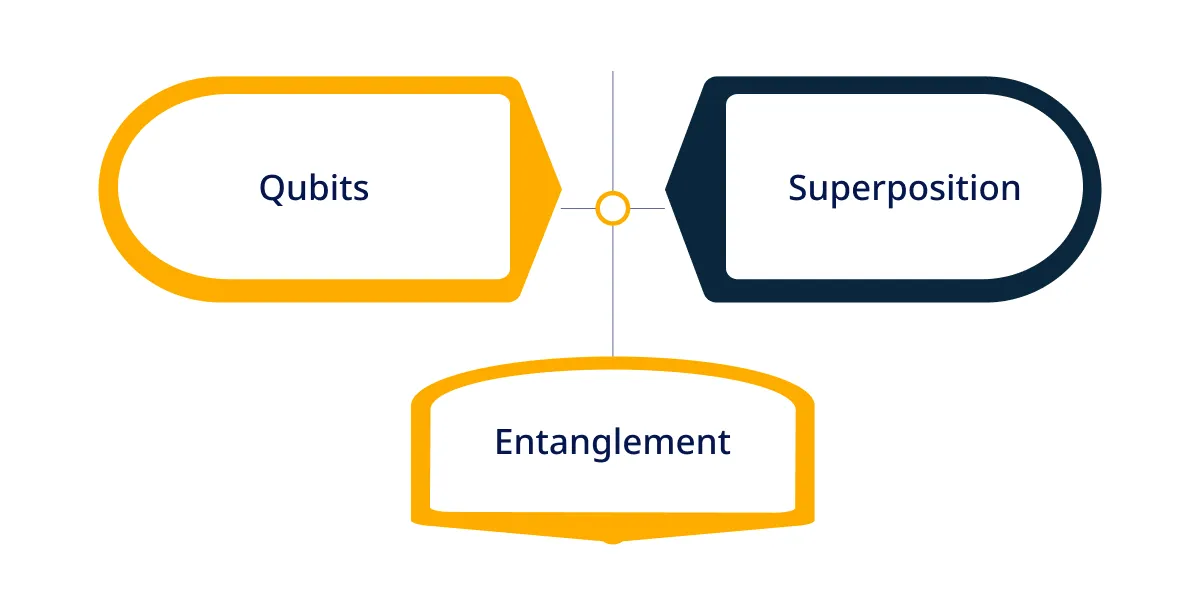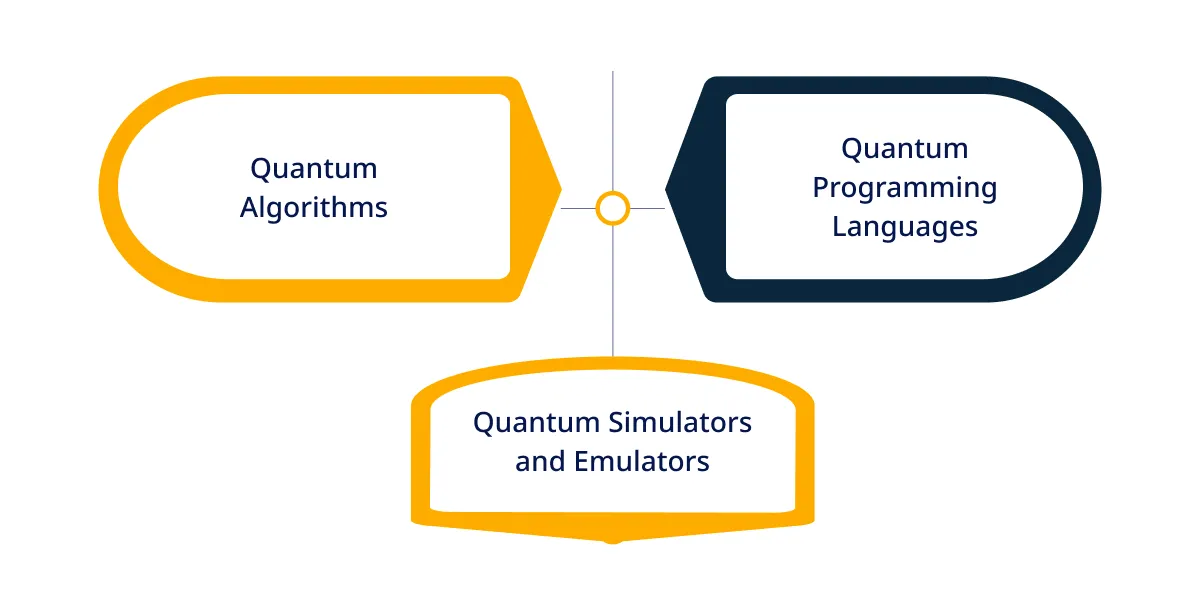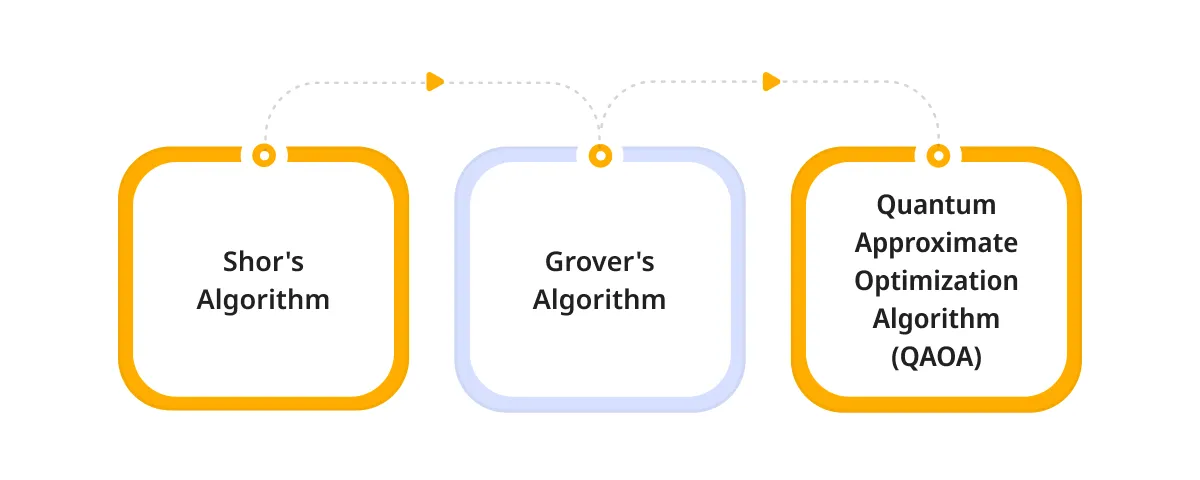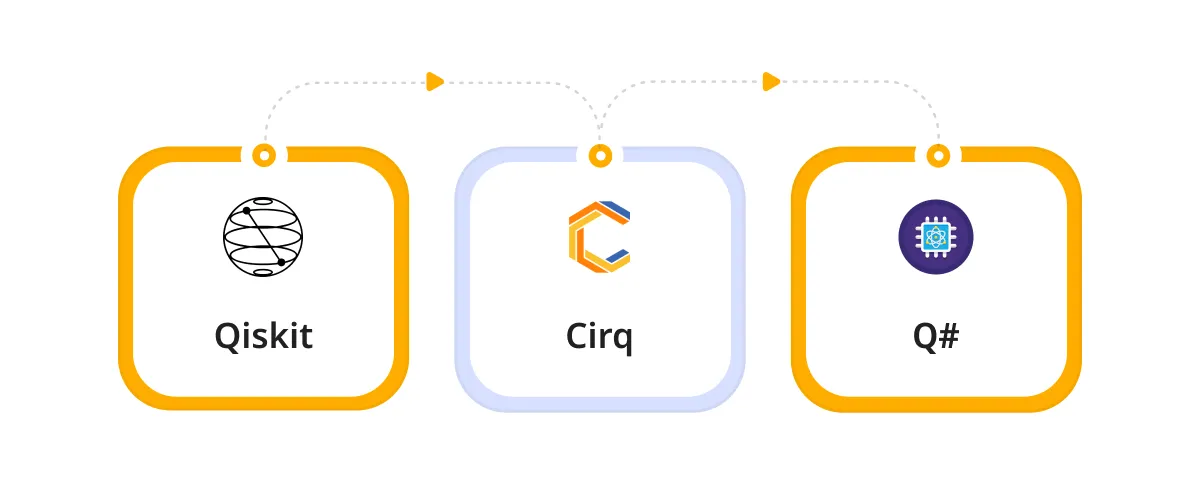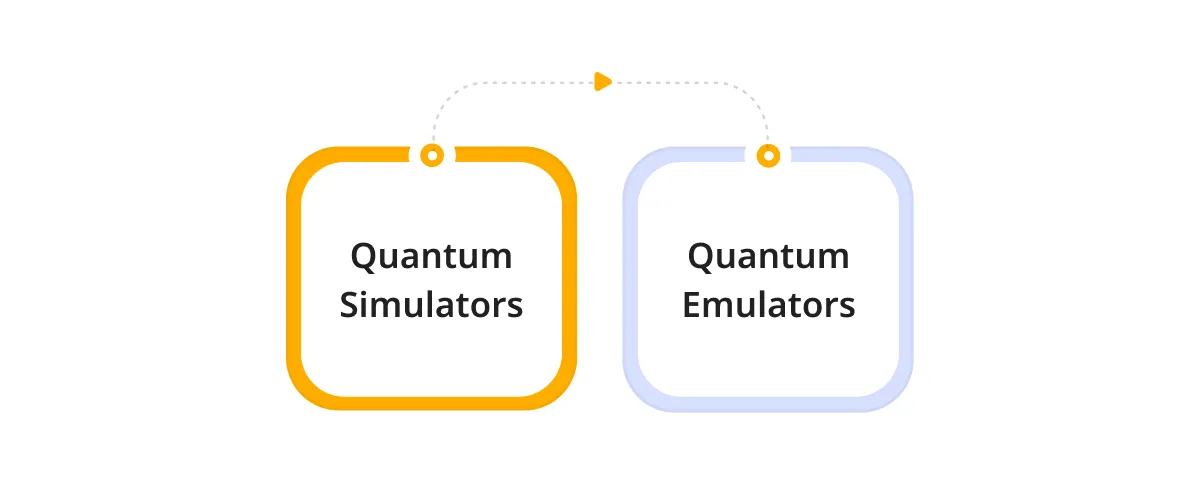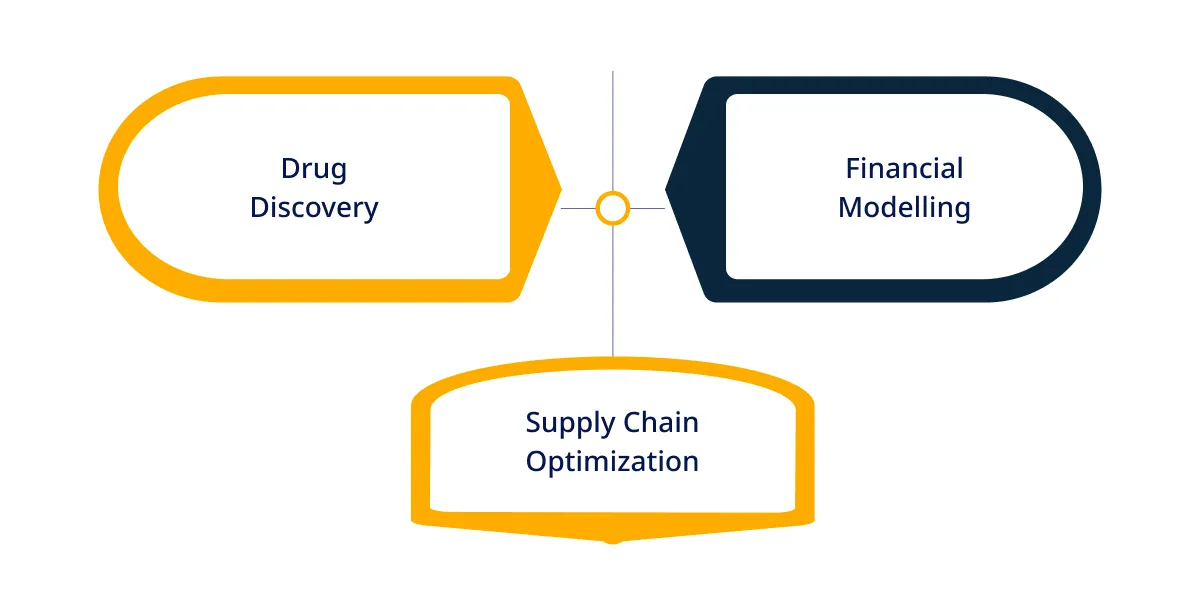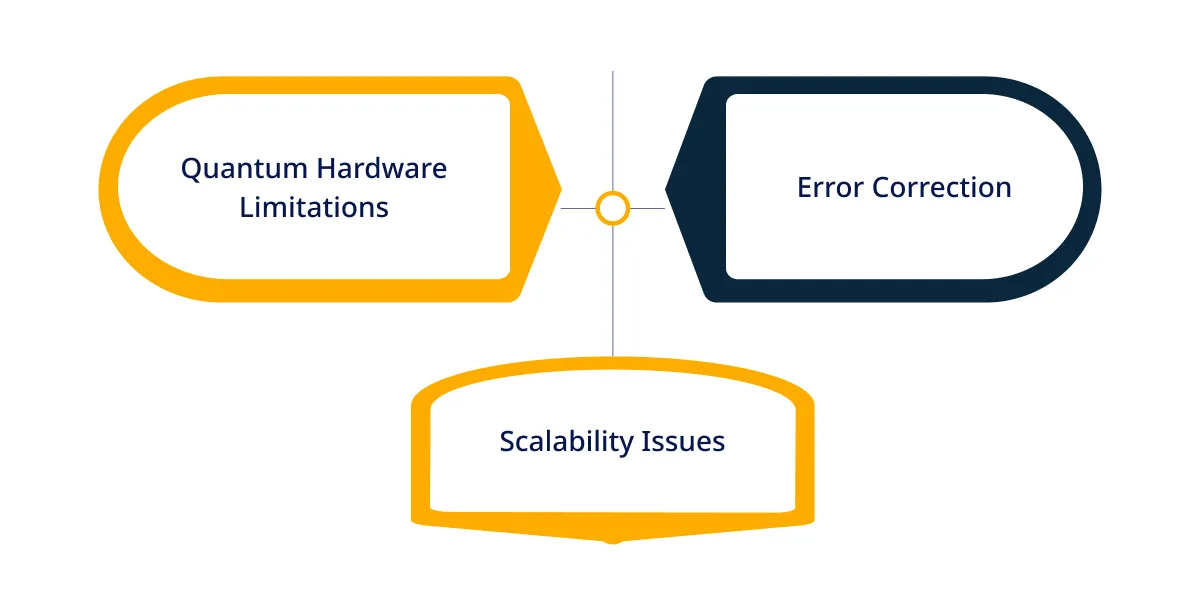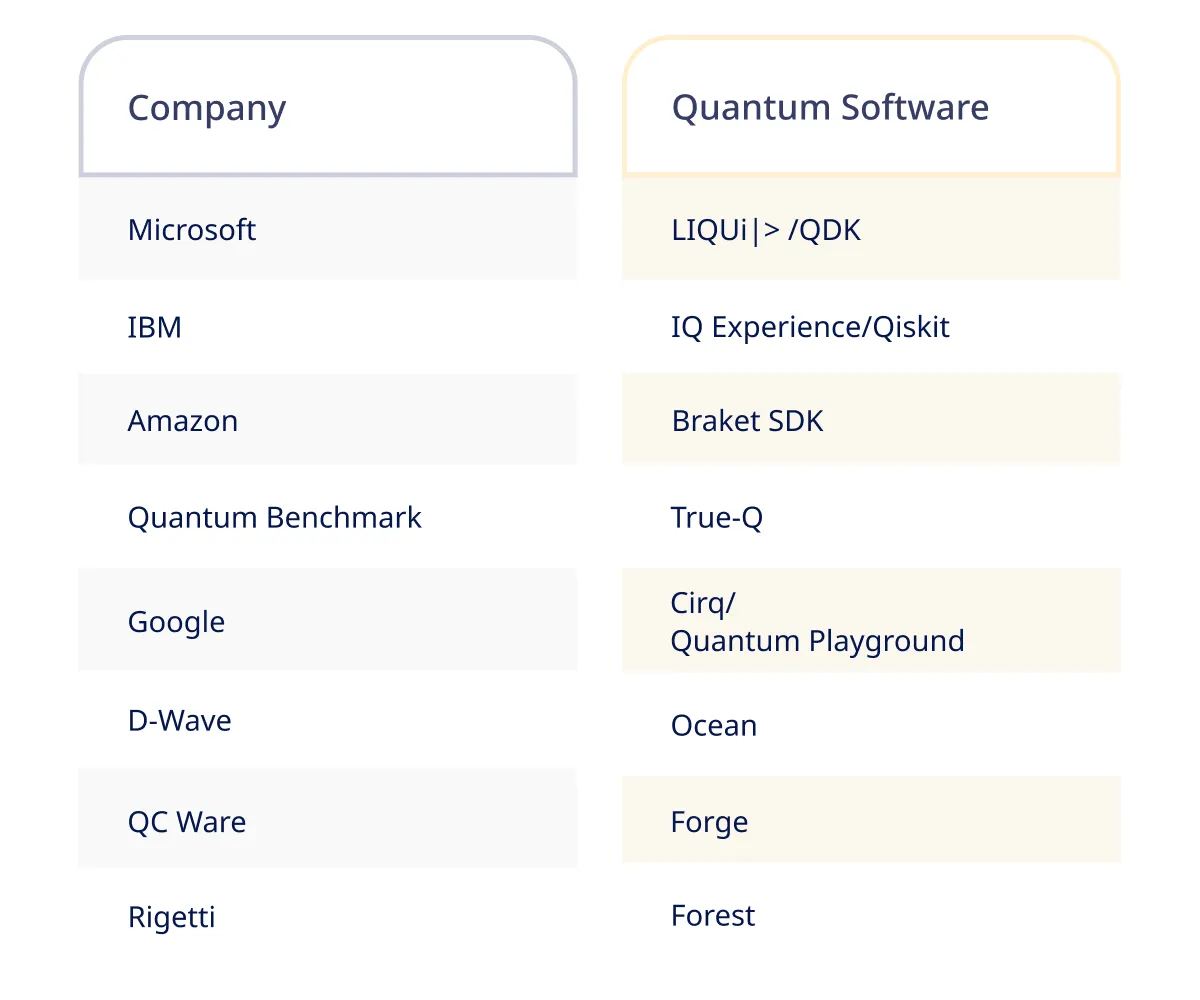Have you ever wondered if there could be powerful computers to solve complex problems in seconds?
Yes, you read it right, and it’s not a science fiction. Quantum computing promises computational power far beyond our modern business capabilities.
Unlike classical computing, which relies on bits as the smallest unit of data, quantum computing software uses qubits. This fundamental difference allows quantum computers to solve complex problems exponentially faster than traditional computers.
But what exactly is quantum software, and how does it work?
This blog post will unlock the immense potential of quantum computing software and let you understand how it works to harness these advanced capabilities for real-world applications.
Understanding Quantum Computing
Quantum computing software utilizes the principles of quantum mechanics to process information in simple ways. At the core of this technology are:
- Qubits: Qubits exist in a superposition state, unlike classical bits, which can be either 0 or 1. They represent both 0 and 1 parallel. This property also allows quantum computers to process a vast amount of data in parallel, thus increasing computational power.
- Superposition: A qubit in superposition can be partially 0 and partially 1, with certain probabilities assigned to each state. This phenomenon is crucial for quantum computers’ exponential increase in computing capability.
- Entanglement: Entanglement occurs when qubits become interconnected so that the state of one qubit directly affects the state of another, no matter how far apart they are. This property enables powerful correlations between qubits to perform complex computations.
Integrate quantum software into your business solutions with our expert developers.
Defining Quantum Gates & Circuits
Quantum gates and circuits are the building blocks of quantum algorithms, much like classical logic gates and circuits in traditional computing.
A series of quantum gates, Quantum Circuit is applied to a set of qubits to perform a specific computation. Circuit diagrams visually represent quantum circuits, with qubits depicted as lines and gates as symbols acting on these lines.
Quantum Gates are the operations that can be applied to qubits, altering their states. Some common quantum gates include:
- Hadamard Gate: This gate puts a qubit into a superposition state, equally likely to be measured as 0 or 1.
- Pauli-X Gate: Analogous to the classical NOT gate, this gate flips the state of a qubit, changing 0 to 1 and vice versa.
- CNOT (Controlled NOT) Gate: This two-qubit gate flips the state of the second qubit (target) only if the first qubit (control) is in state 1, creating entanglement between the qubits.
What is Quantum Computing Software?
Quantum computing software refers to specialized quantum software tools, algorithms, and programming languages using quantum computers’ capabilities.
Unlike classical software, which runs on conventional digital computers, quantum computing software is developed specifically to operate on quantum processors, utilizing the principles of quantum mechanics.
The primary purpose of quantum computing software is to enable the development and execution of quantum algorithms, which consist of sets of instructions for solving problems using quantum computers.
Also read: A Guide To Security In Software Development – White Paper
Types of Quantum Computing Software
Quantum computing software can be categorized into several key types, each playing a distinct role in the quantum computing ecosystem:
Quantum Algorithms: These are the core of quantum software, consisting of algorithms designed to run on quantum computers. Notable examples include:
- Shor’s Algorithm
- Grover’s Algorithm
- QAOA
Quantum Programming Languages: Specialized programming languages have been developed to write and implement quantum algorithms. Some of the most commonly used languages include:
- Qiskit
- Cirq
- Q#
Quantum Simulators and Emulators: These quantum software tools allow developers to test and refine quantum algorithms using classical computing resources, simulating the behavior of quantum systems.
- Quantum Simulators
- Quantum Emulators
ValueCoders brings expertise in quantum software to streamline your operations and improve outcomes.
How Quantum Computing Software Works?
Quantum computing software operates differently from classical software as it uses the principles of quantum mechanics to perform calculations at unprecedented speeds. Here, you will find how quantum computing software works.
1. Using Quantum Algorithms
While classical algorithms operate using a sequence of logical operations on bits (0s and 1s), quantum algorithms exploit the principles of quantum mechanics, such as superposition and entanglement, to perform complex computations simultaneously.
Shor’s Algorithm: Revolutionizing cryptography, Shor’s algorithm factors large integers exponentially faster. This capability holds a significant threat to current encryption methods, highlighting the need for quantum-resistant cryptographic techniques.
Grover’s Algorithm: Ideal for unstructured search problems, Grover’s algorithm offers a quadratic speedup over classical search algorithms. It is particularly useful in database searches, enabling faster information retrieval from unsorted datasets.
Quantum Approximate Optimization Algorithm (QAOA): QAOA solves complex optimization problems in logistics and supply chain management. By using quantum superposition, QAOA can explore numerous potential solutions simultaneously.
2. Using Quantum Programming Languages
Quantum programming languages are specialized languages designed to write, test, and optimize quantum algorithms. They incorporate the principles of quantum mechanics, allowing developers to harness the unique capabilities of quantum computers.
Popular Quantum Programming Languages
Qiskit: Developed by IBM, Qiskit is an open-source quantum computing framework that allows users to create and manipulate quantum circuits. It supports both high-level quantum algorithms and low-level quantum circuit operations.
Cirq: Created by Google, Cirq is one of the leading Python quantum software libraries focused on creating, editing, and executing quantum circuits. It particularly aims at near-term quantum computers (NISQ era) with limited qubits and noise-related challenges.
Q#: Microsoft’s quantum programming language, Q#, is part of the Microsoft Quantum Software Development Kits. It is designed to express quantum algorithms succinctly and work seamlessly with classical programs.
Don’t get left behind. Let ValueCoders guide your quantum software journey for a competitive edge.
How These Languages Help in Writing, Testing, and Optimizing Quantum Algorithms?
Quantum programming languages provide a structured and accessible way to write quantum algorithms. They offer abstractions that simplify complex quantum operations, allowing software developers to focus on the algorithm’s logic rather than the underlying quantum mechanics.
Given the limited availability and accessibility of quantum hardware, these languages are often paired with simulators that run on classical computers.
Simulators can mimic quantum behavior, enabling developers to test their algorithms for correctness and efficiency before deploying them on real quantum machines.
Optimization is crucial in quantum computing due to the limited qubits, noise, and errors. These tools help minimize the number of quantum gates, reduce circuit depth, and optimize resource usage.
3. Quantum Simulators and Emulators
Quantum simulators play a crucial role in developing and testing quantum algorithms. These tools allow researchers to model and analyze the behavior of quantum computing systems on classical computers.
By simulating quantum processes, skilled developers can test and refine their algorithms without access to advanced quantum hardware. This is particularly valuable given the current limitations and high costs associated with quantum computers.
Simulators can explore quantum phenomena such as entanglement and superposition, providing insights into how these principles can be harnessed for practical applications. They also help in debugging and optimizing quantum algorithms.
Furthermore, Quantum emulators bridge current quantum hardware’s capabilities and future advancements/trends in software development.
Emulators mimic the behavior of quantum computers, allowing dedicated software developers to run quantum algorithms in an environment that approximates how they would perform on actual quantum hardware. This helps in understanding the potential challenges and limitations of implementing quantum solutions.
Emulators are essential for preparing the quantum software landscape for the arrival of more powerful and reliable quantum computers, ensuring that applications can take full advantage of these advancements as they become available.
Also read: Latest Technologies Transforming Software Development Landscape
Applications of Quantum Computing Software
Quantum computing software can revolutionize almost all industries by providing computational power far exceeding classical computers’ capabilities.
Healthcare, finance, and logistics are key industries that would benefit from quantum software applications and product development services.
1. Healthcare: Quantum algorithms also identify the most efficient routes plus reduce delivery times and transportation costs by simultaneously processing multiple variables and constraints. This optimizes supply chain management and route planning.
Example
Drug Discovery: Quantum software enables precise simulations of molecular structures and interactions, facilitating the discovery of new drugs. By modeling complex biological processes, researchers can identify promising compounds faster and more accurately than ever.
2. Finance: The finance industry uses quantum computing software for complex financial modeling and risk analysis. Quantum algorithms optimize trading strategies, manage large portfolios, and improve fraud detection by analyzing vast datasets.
Example
Financial Modelling: Quantum algorithms process and analyze large datasets to optimize investment strategies and risk assessments. This leads to better decision-making and improved financial outcomes, especially in volatile markets where rapid analysis is crucial.
3. Logistics: Quantum algorithms also identify the most efficient routes, improve delivery times, and reduce transportation costs by simultaneously processing multiple variables and constraints. This optimizes supply chain management and route planning.
Example
Supply Chain Optimization: Quantum computing software streamlines logistics by solving complex optimization problems, such as managing inventory levels and determining the most efficient routes for delivery trucks. This further results in cost savings and improved efficiency.
Challenges and Considerations
As promising as quantum computing and quantum software may be, they face significant technical challenges that an enterprise software development company must address to realize their full potential.
Quantum Hardware Limitations: Current quantum computers are limited by the number of qubits they can handle and the coherence time of these qubits, which is the duration they can maintain their quantum state without significant decoherence.
Error Correction: Quantum computing software is highly susceptible to errors due to quantum decoherence and operational inaccuracies. Quantum error correction is complex because quantum information cannot be copied, making traditional error correction methods inapplicable.
Scalability Issues: Building scalable quantum computers capable of handling many qubits and complex quantum operations remains challenging. Scaling up requires hardware, quantum algorithms, and software improvements to optimize large quantum systems effectively.
However, the advent of quantum computing software raises the importance of the ethical and security considerations that must be thoughtfully addressed. Have a look at these considerations below:
Data Privacy
- Quantum software computing has the potential to break many of the cryptographic systems currently used to protect data privacy.
- This also poses a significant risk to data security, as sensitive information could be exposed.
- The development of quantum-resistant encryption methods is crucial to safeguard data against potential quantum attacks.
Cybersecurity Risks
- The power of quantum computers could be exploited to compromise cybersecurity globally, particularly if they fall into the hands of malicious actors.
- The ability to break encryption standards could undermine the security of financial systems, government communications, and personal data.
Ethical Implications
- The widespread deployment of quantum computing could lead to ethical dilemmas related to the balance of power.
- Countries or organizations that gain early access to advanced quantum technology could dominate certain sectors, leading to inequalities.
- Using quantum technology in artificial intelligence raises questions about the ethical use of such powerful tools, particularly in surveillance, military applications, and other sensitive areas.
ValueCoders’ quantum software development services offer rapid solutions to your most challenging tech problems.
List of Major Quantum Software Companies
Have a look at the following big names in the Quantum computing software market. These quantum software companies provide innovative software solutions for quantum computing.
Future Potential of Quantum Software
Quantum computing software development services focus on building robust algorithms, improving quantum programming languages, and enhancing quantum simulators and emulators.
However, the future of quantum software solutions holds exciting possibilities as the technology matures and quantum computers become more capable and accessible.
Several areas stand out for their potential to be revolutionized by advancements in quantum software via custom software development companies:
1. Cryptography and Cybersecurity
Quantum software platforms could dramatically change the landscape of cybersecurity. Moreover, Quantum algorithms have the potential to break cryptographic systems, necessitating the development of quantum-resistant encryption methods.
Quantum key distribution (QKD) offers a promising approach to secure communication. It leverages quantum mechanics to provide theoretically unbreakable encryption.
2. Artificial Intelligence and Machine Learning
Quantum software has the potential to enhance artificial intelligence and machine learning applications by processing and analyzing vast amounts of data more efficiently.
Quantum machine learning algorithms could lead to pattern recognition, data classification, and predictive analytics breakthroughs.
3. Fundamental Science and Research
Beyond practical applications, quantum computing software enables researchers to explore fundamental questions in physics, chemistry, and beyond.
Quantum simulations further provide insights into the behavior of quantum systems, contributing to our understanding of the universe’s fundamental principles.
As quantum hardware continues to improve, with more qubits and lower error rates, the potential applications of quantum software will expand significantly.
Must Read: Complete Guide to Software Development Services
Conclusion
So far, we have seen that quantum computing software emerges as a strong element in harnessing the power of quantum computers. While still in its infancy, this technology promises to revolutionize industries and solve complex problems.
The latest research and development has proved that quantum computing software is a testament to human ingenuity and our relentless pursuit of progress. Its potential becomes increasingly clear, brightening the future where unimaginable computational capabilities become a reality.
Now is the right time to connect with top software developers in India. ValueCoders is India’s leading software outsourcing company, and it has been operating since 2004. We are experts in all the latest technologies. Contact us today!


